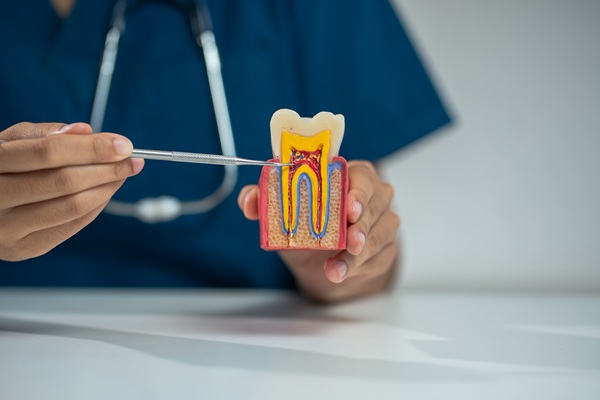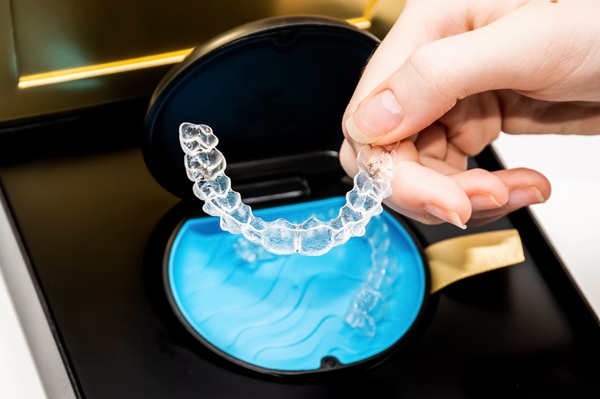When it comes to dental health, most people focus on brushing, flossing, and regular checkups, thinking that these are the only things we can do on our end to keep our teeth healthy. But have you ever wondered what role the nerves inside your teeth play?
Understanding the role of the nerves in teeth can help you appreciate why dental care is so important, and why damage to these nerves can cause discomfort or pain.
At Bellevue Hill Dental, we believe that educating our patients about the teeth nerves anatomy helps them feel more comfortable during treatment and encourages better oral care. In this blog, we’ll explain what dental nerves do, how they work, and what happens when there is dental nerve damage.
Let’s dive right in!
What Are Teeth Nerves?
The Basics of Teeth Nerve Anatomy
Each of your teeth contains a soft inner core called the pulp, which houses the dental nerve and blood vessels. This nerve is not like the ones you feel in your skin but is sensitive and essential for the health of your tooth.
The tooth’s nerve anatomy includes the nerve fibers that enter the tooth through a small opening at the tip of the root, running through canals inside the tooth. These nerves send signals to your brain about sensations like temperature, pressure, and pain.
Why Do Teeth Have Nerves?
You might wonder why teeth have nerves at all. The main reasons are:
- Sensation: Teeth nerves help you feel hot, cold, or pain. This sensation protects your teeth from injury by alerting you when something is wrong, like eating very hot food or experiencing a cavity.
- Tooth Health: The nerves inside teeth help keep the tooth alive by providing nutrients and sending signals for repair if damage occurs.
- Development: During childhood, nerves play a role in the growth and formation of your teeth.
How Do Nerves in Teeth Work?
The nerves inside your teeth connect to larger nerves in your jaw. When something touches your tooth, the nerves send electrical signals through the dental nerve to your brain. This process helps you sense pressure when chewing or pain if the tooth is injured or infected.
For example, if you bite into something hard or cold, the nerves will react quickly, helping you avoid further damage.
What Happens When There Is Dental Nerve Damage?
Causes of Dental Nerve Damage
Dental nerve damage can happen for several reasons, including:
- Tooth decay that reaches the nerve
- Dental trauma or injury
- Deep fillings or crowns that irritate the nerve
- Gum disease that affects the root of the tooth
- Root canal infections
When the nerve becomes damaged or infected, it can cause pain, sensitivity, or even tooth loss if not treated promptly.
Signs of Dental Nerve Damage
It’s important to recognise the symptoms of dental nerve damage, which can include:
- Persistent toothache or sharp pain
- Sensitivity to hot, cold, or sweet foods
- Swelling or tenderness around the tooth
- Discoloration of the tooth
If you experience any of these symptoms, it’s important to see your dentist as soon as possible.
How Dentists Treat Dental Nerve Problems
Root Canal Therapy
If the dental nerve is infected or damaged beyond repair, the most common treatment is root canal therapy. This procedure removes the infected nerve tissue, cleans the canals inside the tooth, and seals it to prevent further infection.
Root canal therapy helps save your natural tooth, preventing the need for extraction. At Bellevue Hill Dental, we make sure you are comfortable throughout the process and explain every step clearly.
Preventing Dental Nerve Damage
Good oral hygiene and regular dental checkups are the best ways to protect your teeth nerves. Brushing twice a day, flossing daily, and visiting your dentist regularly can prevent cavities and infections that lead to nerve damage.
Caring for Your Teeth Nerves
Understanding the importance of teeth nerves means taking steps to protect them. Here are some simple tips to keep your dental nerves healthy:
- Maintain good oral hygiene: Brush and floss gently but thoroughly.
- Avoid excessive sugary foods and drinks: These can cause decay that harms the nerve.
- Wear a mouthguard during sports: Protect your teeth from injury.
- Don’t ignore tooth pain: Early treatment prevents nerve damage.
- Schedule regular dental visits: Early detection of problems keeps your nerves safe.
Why Knowing About Teeth Nerves Matters
When you understand what your teeth nerves do and how important they are, you’re more likely to take better care of your smile. The nerves inside your teeth protect your oral health by alerting you to danger and keeping your teeth alive.
Dental nerve problems can be painful, but with early care, most issues can be treated successfully. At Bellevue Hill Dental, we are here to help you protect your dental nerves and maintain a healthy, pain-free smile.
Ready to Protect Your Teeth Nerves Today?
If you experience any tooth pain or suspect nerve problems, don’t wait, early treatment can save your natural teeth and prevent discomfort. Bellevue Hill Dental offers expert care to keep your teeth nerves healthy and your smile strong.
Book your appointment today and take the next step toward protecting your dental nerves and overall oral health.



